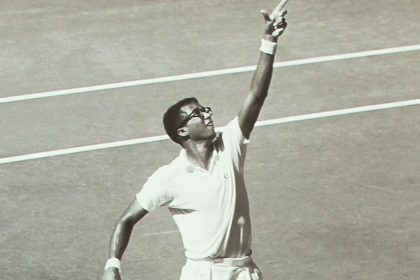Beneath the surface of romantic partnerships lies a complex web of unspoken needs that many men struggle to articulate. Recent psychological research reveals that these silent yearnings, when left unexpressed, can create unnecessary friction and distance between couples. Understanding these deeper emotional currents may hold the key to building more resilient and fulfilling relationships.
The foundation of feeling valued
At the heart of many men’s emotional landscape sits an often-overlooked need for respect and recognition. This extends far beyond simple praise, encompassing a deeper validation of their contributions and efforts within the relationship. When partners acknowledge their problem-solving attempts, support their decisions publicly, or simply recognize their daily contributions, it creates a profound sense of worth that strengthens the entire partnership.
Daily recognition matters in ways that often go unnoticed. Whether it’s appreciating the morning coffee ritual, acknowledging work stress, or recognizing household contributions, these small gestures accumulate into significant emotional deposits. Research indicates that men frequently connect feeling respected with their overall sense of self-worth, making this validation particularly powerful.
Public support carries special weight in male psychology. Standing behind decisions, avoiding criticism in social settings, and presenting a united front during challenges all contribute to a deeper sense of partnership and mutual respect.
The emotional complexity beneath
Contrary to persistent stereotypes, men experience emotions with remarkable depth and intensity. The difference lies not in the feelings themselves but in how they’ve been conditioned to express—or suppress—them. This emotional complexity often creates internal struggles that remain invisible to partners.
Many men carry the weight of cultural expectations that discourage emotional vulnerability. This conditioning frequently begins in childhood and continues through social reinforcement, creating adults who feel deeply but express cautiously. The result is often a rich inner emotional life that partners rarely glimpse.
Physical connection serves as a primary emotional language for many men, extending well beyond romantic intentions. Simple touches, proximity during conversation, and non-sexual physical affection often communicate support and connection more effectively than words. This physical vocabulary becomes particularly important when verbal expression feels challenging.
The pressure to solve everything
Modern masculinity often carries an invisible burden: the expectation to fix every problem that arises. This pressure can create significant anxiety, particularly when solutions aren’t immediately apparent or when problems require patience rather than action.
Processing time becomes crucial in these situations. Many men need space to work through challenges mentally before discussing them, yet this natural processing style can be misinterpreted as disengagement or lack of caring. Understanding this need for internal reflection can prevent misunderstandings and support more effective problem-solving.
Permission to not know represents a profound gift in relationships. When partners communicate that it’s acceptable to be uncertain, to struggle with solutions, or to need time before responding, it removes enormous pressure and creates space for more authentic connection.
Communication barriers and bridges
Expression challenges often stem from legitimate fears about misinterpretation or causing unintended hurt. Many men report anxiety about saying the wrong thing, choosing poor timing, or accidentally triggering emotional reactions. These concerns can lead to avoidance of important conversations, creating distance when closeness is needed.
Direct communication typically resonates more strongly than indirect approaches. Clear expectations, honest feedback, and straightforward discussions often feel safer and more trustworthy than subtle hints or implications. This preference for directness extends to receiving difficult truths, which many men prefer over sensing that information is being withheld.
Appreciation and recognition fuel motivation in powerful ways. Acknowledging efforts, celebrating progress, and recognizing skills and intelligence create positive reinforcement cycles that strengthen both individual confidence and relationship satisfaction.
The value of solitude
Time alone serves essential psychological functions that support relationship health rather than threaten it. This solitude allows for mental processing, emotional regulation, and energy restoration that enables men to return to relationships more present and engaged.
Understanding these unspoken needs doesn’t require dramatic changes but rather awareness and intentional responses. Creating environments where expression feels safe, maintaining consistent appreciation, and respecting individual processing styles can transform relationships into stronger, more connected partnerships that benefit both people involved.

















